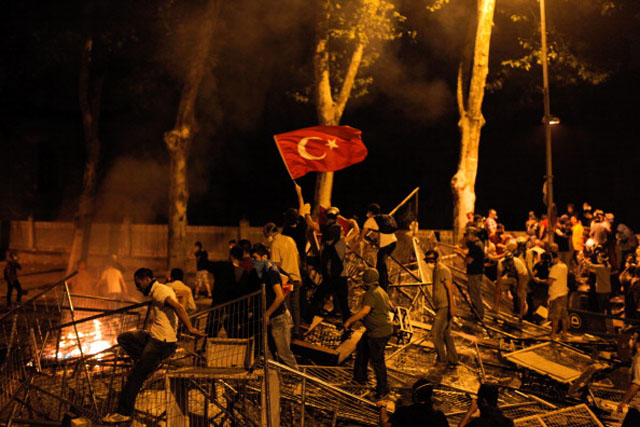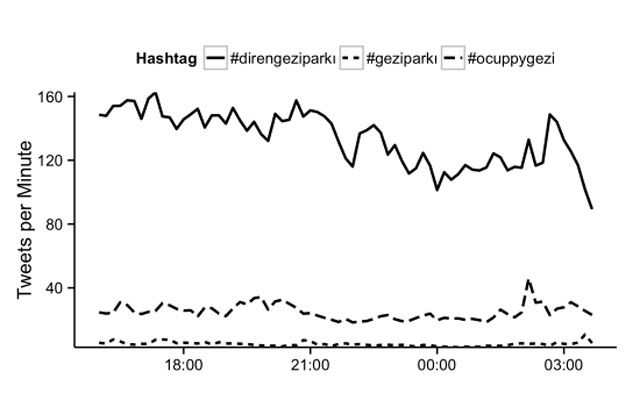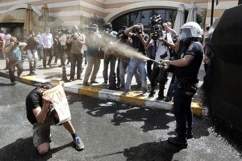
Protestors clash with riot in Istanbul. Thousands of demonstrators as what started as an outcry against a local development project has snowballed into widespread anger against what critics say is the government’s increasingly conservative agenda. (Getty Images)
Turkey has been embroiled in anti-government protests which have been met by aggressive backlash from police. Now it looks like Turkish Prime Minister Recep Tayyip Erdogan — the man targeted in recent demonstrations — is blaming Twitter for the outbreak of violence across his country. According to state-run news agency in Turkey, at least 25 people have been arrested this week for instigating protests by “spreading untrue information” on social media. While the Turkish population continues to adamantly protest Recep Tayyip Erdogan’s conservative government, Turkey’s Prime Minister has deemed social media as one of his biggest enemies:
There is a problem called Twitter right now and you can find every kind of lie there … The thing that is called social media is the biggest trouble for society right now
Social media has been a heavy impulse and influence in Turkey’s recent protests. With local media failing to cover the ongoing anti-government protests, Twitter has become a vital tool for civilians to share what’s going on in the country. A whopping 90% of geotagged tweets are coming out of inside the country, per a NYU study

2 Million Tweets mentioned hashtags related to protests. The activity on Twitter was constant through the first day of protests (Friday 31) with 3,000 tweets about the protests being published every minute
Many if those detained were in the wester coastal city of Izmir which has been featured in several YouTube clips purportedly showing police beatings on civilians. Below is an example of a video posted from a YouTube user in Izmir – prompting further speculation that those who have been detained were involved in disiminating photos, videos and information on social media sites.
What began as a peaceful demonstration against the demolition of a park has become a wide-spread protest as thousands of demonstrators flooded the streets as an outcry against Recep Tayyip Erdogan’s increasingly conservative and authoritarian agenda. Turkey has too few checks and balances on the prime ministers power and its democratic foundations — including an independent judiciary, free media and strong political parties — are losing ground.
The recent dissidence in Turkey shadows the effective use of social media carried out during the Arab Spring: the revolutionary wave of demonstrations which forced rulers out of power in Tunisia, Egypt Libya and Yemen.
Will Turkey follow in the footsteps of these countries?
